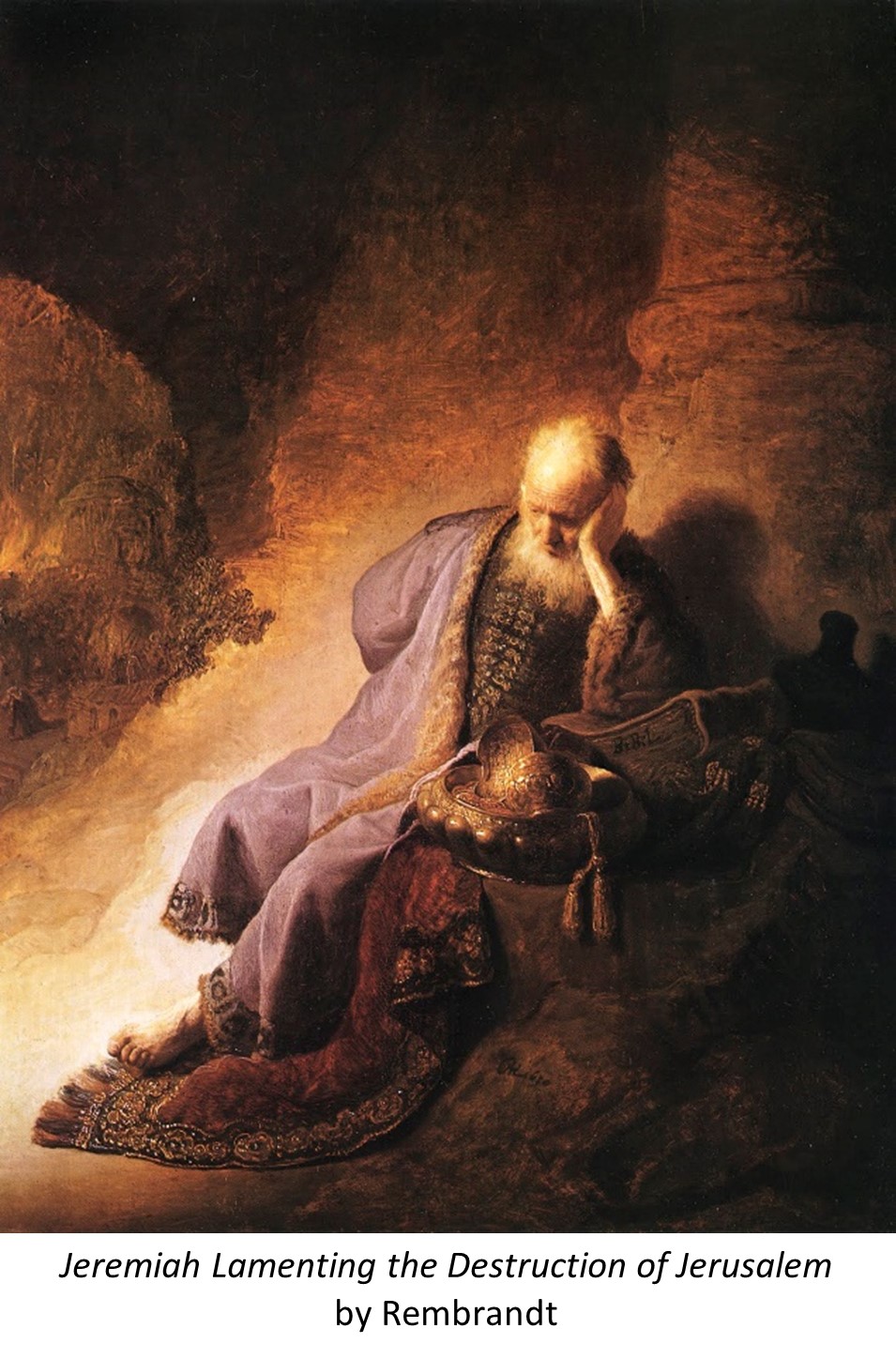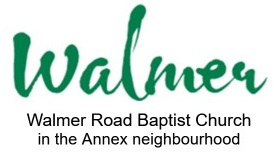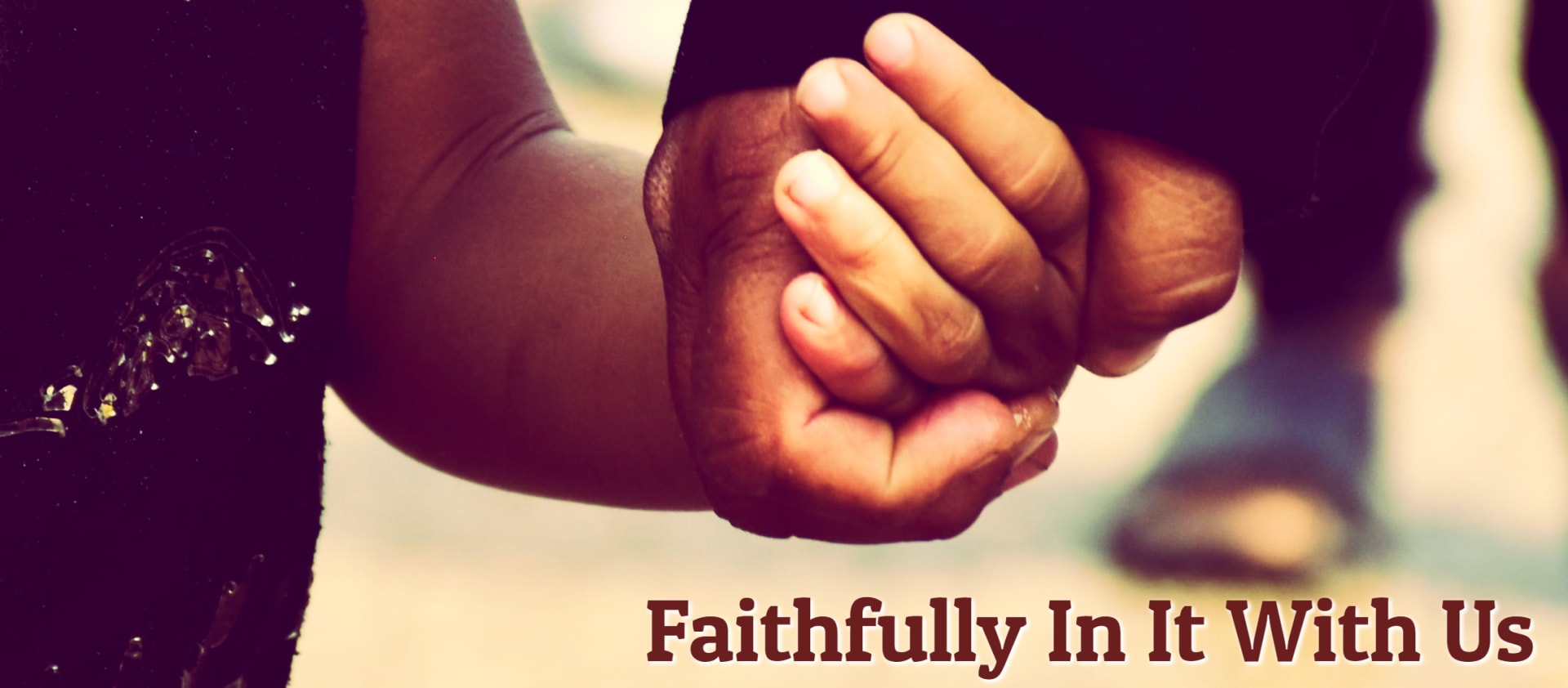A New Covenant
Sermon Note:
There is no recording available this week.
Scripture
Jeremiah 31:31 – 34
The days are surely coming, says the Lord, when I will make a new covenant with the house of Israel and the house of Judah. Read more…
1 Corinthians 11:23 – 26
For I received from the Lord what I also handed on to you, that the Lord Jesus on the night when he was betrayed took a loaf of bread… Read more…
Looking to Sunday
by Elaine Poproski
 Jeremiah may have been the saddest, most mournful profit in all history. Over and over again He spoke God’s words of warning to Israel. They had long since wandered away from God. They worshiped other gods; they abandoned the ways of God; they perpetrated wrong after wrong against their own most vulnerable people. And yet, God remained faithful generation after generation, never forgetting the covenant He made with Abraham:
Jeremiah may have been the saddest, most mournful profit in all history. Over and over again He spoke God’s words of warning to Israel. They had long since wandered away from God. They worshiped other gods; they abandoned the ways of God; they perpetrated wrong after wrong against their own most vulnerable people. And yet, God remained faithful generation after generation, never forgetting the covenant He made with Abraham:
“I will make of you a great nation and I will bless you, and make your name great, so that you will be a blessing. I will bless those who bless you, and the one who curses you I will curse; and in you all the families of the earth shall be blessed” (Genesis 12:2 – 3).
But no matter what Jeremiah said, the people didn’t change. And God was true to His word that He would allow His people to be conquered and exiled. Jeremiah, nicknamed the Weeping Prophet, likely wrote the book of Lamentations from this place of despair. If you ever feel like giving up on the world or like the world has given up on you, spend some time in Lamentations; its rich imagery and poetic license leave room for any heartache – any loss – while always reminding the reader that “the steadfast love of the Lord never ceases, His mercies never come to an end” (Lamentations 3:22).
Like in Lamentations, the book of Jeremiah is not all doom and gloom. It is full of promise and hope. It is a reminder that even though all seems lost, even though the people have walked away from God, God has not and will not walk away from them. That’s what we’ll see on Sunday. “The days are surely coming, says the Lord, when I will make a new covenant with the house of Israel and the house of Judah… I will forgive their iniquity and remember their sin no more” (Jeremiah 31:31, 34).
We live in that New Covenant. We live under the umbrella of God’s grace. We live in the promise of communion with God and with each other, symbolized in the cross and celebrated in the Lord’s Supper.
As you prepare for Sunday, perhaps spend some time considering what symbols speak to you of God’s grace in your life. How and when have you experienced God’s willingness (eagerness?) to overcome the sin that burdens you? Traditionally, the symbols of bread and wine (we Baptists tend to use grape juice) are used most consistently to represent God’s grace. You may want to have both on hand this week as we celebrate communion together. Both bread and wine were standard parts of 1st century Middle Eastern meals. But as Jesus broke the bread and shared the wine, as Jesus’ disciples ate and drank, these common food items became something more; they became the very presence of Jesus – of the Holy Spirit – dwelling in Jesus’ people. As you prepare for Sunday, perhaps give some thought to what you will bring for our re-enactment of the Lord’s Supper.

